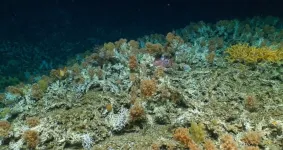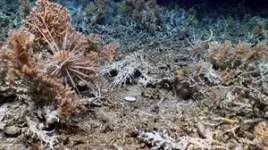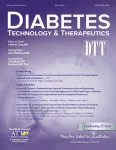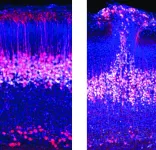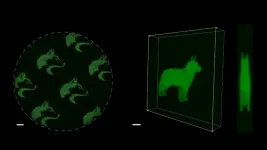17 April 2023 - Galápagos, Ecuador – Scientists have discovered extensive, ancient deep-sea coral reefs within the Galápagos Marine Reserve (GMR) – the first of their kind ever to be documented inside the marine protected area (MPA) since it was established in 1998. The first reef observed was found at 400-600m (1,310-1,970 feet) depth at the summit of a previously unmapped seamount in the central part of the archipelago and supports a breathtaking mix of deep marine life.
Cresting the ridge of a submerged volcano, and stretching over several kilometers, the impressive reef structure was first recorded by Dr. Michelle Taylor (University of Essex, UK) and Dr. Stuart Banks (Charles Darwin Foundation, Ecuador) while diving in the deep-sea research submersible Alvin, operated by the Woods Hole Oceanographic Institution (WHOI, USA). This is the first time
HOV Alvin has explored this region within the GMR. The submersible recently completed upgrades that included improved high-quality still and ultra-high definition 4K video imaging systems, as well as enhanced sampling capabilities.
Taylor and Banks are part of an international group of scientists onboard the US Navy-owned and WHOI-operated research vessel R/V Atlantis, that is undertaking the Galápagos Deep 2023 expedition. The expedition is led by scientists at WHOI, University of Bristol (UK), Boise State University (USA), and University of Essex, in collaboration with the Galápagos National Park Directorate (GNPD), Charles Darwin Foundation and Ecuadorian Navy’s Oceanographic and Antarctic Institute (INOCAR). The expedition is funded by the US National Science Foundation (NSF) and Natural Environmental Research Council (NERC) in the UK.
Commenting on this groundbreaking discovery, the Minister of Environment of Ecuador, Jose Antonio Dávalos said: "This is encouraging news. It reaffirms our determination to establish new marine protected areas in Ecuador and to continue promoting the creation of a regional marine protected area in the Eastern Tropical Pacific. The richness of the yet explored depths of our ocean is another reason to strive towards achieving the commitments of the Global Ocean Alliance 30x30, which aims to protect at least 30% of the world's oceans by 2030, aligning sustainable economic activities with conservation."
Prior to this discovery, Wellington Reef off the coast of Darwin Island in the far north of the archipelago was thought to be among the few structural shallow coral reefs in the Galápagos Islands to have survived the 1982-83 El Niño event. The new discovery made during dives by scientists in the HOV Alvin shows that sheltered deep-water coral communities have likely persisted for centuries in the depths of the GMR, supporting rich, diverse, and potentially unique marine communities.
Dr Stuart Banks, Senior Marine Researcher at the Charles Darwin Foundation, and national observer on this expedition adds: “The captivating thing about these reefs is that they are very old and essentially pristine, unlike those found in many other parts of the world’s oceans. This gives us reference points to understand their importance for marine natural biodiversity heritage, connectivity with regional MPAs, as well as their role in providing goods and services such as carbon cycling and fisheries. It also helps us reconstruct past ocean environments to understand modern climate change. Open waters cover over 95% of the known GMR, of which less than 5% have been explored through modern research expeditions. It’s very likely there are more reef structures across different depths waiting to be explored. We’ll forge ahead with the Galapagos National Park Directorate and partners to help ensure that such newly discovered habitats are
folded into the GMR and Hermandad Marine Reserve planning process and recognized as part of their considerable world heritage value”.
Dr Michelle Taylor, co-lead of the expedition and Chair of the Deep Sea Society from the University of Essex notes the importance of this discovery for deep sea habitats: “The discovered reefs are novel for several reasons – in shallow reefs where finding 10-20% of coral cover would be considered a relatively unhealthy reef, in the deep-sea this is the norm. Dead coral skeletons making up the remaining 80-90% still provide homes for a huge diversity of life, which is less reliant on the live sections of coral. However, the reefs we’ve found in the last few days have 50-60% live coral in many areas, which is very rare indeed. They are pristine and teeming with life – pink octopus, batfish, squat lobsters and an array of deep-sea fish, sharks, and rays. These newly discovered reefs are potentially of global significance – a canary in the mine for other reefs globally – sites which we can monitor over time to see how pristine habitats evolve with our current climate crisis.”
Dr Daniel J. Fornari, co-lead of the expedition, marine geologist, and Emeritus Research Scholar at the Woods Hole Oceanographic Institution who has mapped and sampled the marine environment in the Galápagos for over 20 years notes: “Exploring, mapping and sampling the Galápagos Platform with Alvin and Atlantis represents an opportunity to apply 21st-century deep-submergence and seafloor mapping technologies and innovative deep-sea imaging techniques to reveal the beauty and complexity of the volcanic and biological processes that makes the Galápagos so unique".
Scientific findings such as this help inform effective management and conservation actions. The discovery also comes at a time when the Eastern Tropical Pacific countries of Panama, Costa Rica, Colombia, and Ecuador are actively collaborating through a regional Marine Corridor (CMAR) initiative to protect and responsibly manage the ocean upon which we as people depend. Newly declared MPAs such as the Hermandad Marine Reserve (HMR) now connect seamounts in Ecuadorian waters to offshore marine environments such as Costa Rica’s Cocos Island National Park. Natural oceanographic and marine processes transcend national boundaries, which underscores the need for special measures that protect foraging grounds, migratory routes for marine life and sustain responsible fisheries.
For more information about the expedition objectives, scientists and the R/V Atlantis and HOV Alvin, please visit: https://galapagosdeep2023.com/
END
